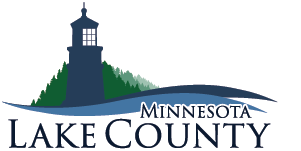Yard Waste and Compost
Yard Waste Facilities
- Yard Waste at Construction and Demolition Landfill – Bunker Hill Road, Two Harbors
- Fall Lake Transfer Station – 303 Kawishiwi Trail, Ely
- John’s Sanitary – 15 Golf Course Road, Silver Bay
- Two Harbors Yard Waste Facility – Fairgrounds Road, Two Harbors (open to residents within city limits)
Yard Waste Facilities (outside county)
- Northwoods Transfer Station – 9384 Hwy 21 N, Ely
- St. Louis County Regional Landfill – 5341 Regional Landfill Road, Virginia
- WLSSD Yard Waste and Compost Site – 27th Ave W and Courtland St, Duluth (food waste also accepted at WLSSD)
Yard Waste Guide
Accepted
- Brush
- Leaves
- Clean soil
- Sod
- Hay or straw
- Lawn clippings
- Wood chips
- Tree limbs
- Firewood
Not Accepted
- Boards ·
- Lawn furniture
- Railroad ties
- Root balls
- Bricks
- Landscaping timbers
- Pallets
- Cement Blocks
- Flower Pots
Back Yard Composting
Up to 30% of household waste is food scraps and yard waste. Composting this material saves space in landfills and creates a nutrient-rich soil addition. There are no state or county laws or ordinances that prohibit property owners from having their own compost area on their property
There are four main steps to backyard composting:
- Make a compost bin or buy one
- Toss in about 3/4 browns and 1/4 greens
Browns include dry leaves, woodchips, twigs, pine needles and cones, straw, non-waxy paper and cardboard, egg cartons
Greens include grass clippings and kitchen scraps including fruits, vegetables, coffee grounds, and tea bags - Add water as needed
- Mix it up with a shovel or pitchfork
Items you CAN compost:
- Fruits
- Vegetables
- Eggshells
- Coffee Grounds and Filters
- Tea Bags
- Shredded paper
- Cardboard
- Yard Trimmings
- Gass Clippings
- Houseplants
- Hay and Straw
- Leaves
- Lin, hair, fur
- Wood Ashes
Items you CANNOT compost:
- Meat
- Dairy Products
- Oils and Fats
- Bones
- Pet Waste
- Charcoal Ash
